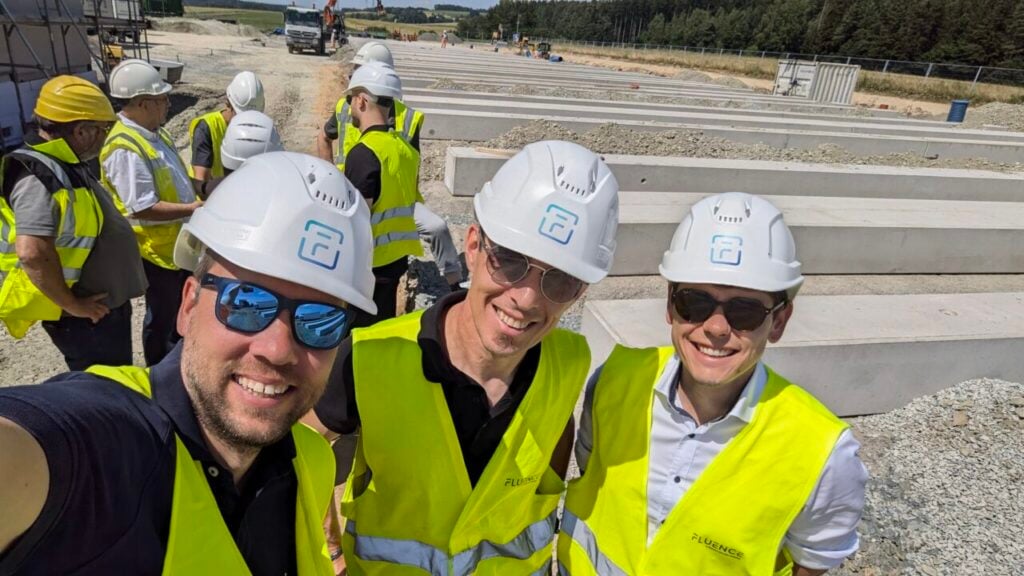
Utility and power firm Verbund has selected system integrator Fluence to deploy two BESS projects in Germany totalling 186MWh of capacity, with noise and cybersecurity standards key.
The two battery energy storage system (BESS) projects will total 92MW/186MWh of energy storage capacity. The first, in Weißenthurm-Kettig, Rhineland-Palatinate, will total 50MW/100MWh while the second in Elsterberg-Coschütz, Saxony, will be a 42.9MW/86.5MWh system.
Both projects deploy a modular system approach, presumably with Fluence’s Gridstack Pro, although the firm didn’t specify in its announcement.
Fluence did say that it convinced Verbund with its advanced noise protection features, and included the submission of a comprehensive noise report as part of its proposal. Noise has become a big topic in the energy storage industry as projects are built closer to where people live.
Try Premium for just $1
- Full premium access for the first month at only $1
- Converts to an annual rate after 30 days unless cancelled
- Cancel anytime during the trial period
Premium Benefits
- Expert industry analysis and interviews
- Digital access to PV Tech Power journal
- Exclusive event discounts
Or get the full Premium subscription right away
Or continue reading this article for free
It also demonstrated robust cybersecurity measures that align with stringent system security standards, the system integrator said.
Verbund is targeting 1GW of storage by 2030, and already has 110MW/130MWh in Germany. The firm is headquartered in Austria, but most of its energy storage activity has been in its neighbouring country. Its main activity is hydropower in Austria.
The utility appears to be planning to trade the BESS itself, with Karl Potz, head of battery storage systems at the company, saying: “With our innovative trading algorithms, we can optimally market battery storage and thus make a significant contribution to a stable electricity grid. This partnership is another step towards a secure and affordable energy system in Germany.”
Markus Meyer, managing director of Fluence Energy GmbH (its German subsidiary), commented: “With projects totaling over 750 MW in construction or completed across Germany, Fluence is playing a key role in supporting a cost-efficient, reliable, and secure energy supply. The projects Weißenthurm-Kettig and Elsterberg-Coschütz mark another important step toward strengthening Germany’s energy infrastructure.”
The company’s pipeline includes a 100MW/200MWh project in Wunsiedel deployed for investor MW Storage, construction of which is pictured above.
Germany has recently become a hotbed of grid-scale BESS activity in the past few years but particularly the past 12 months, as revenue opportunities in its ancillary services and wholesale energy markets combine with ever-lower BESS prices to create a strong business case.
In the past few weeks alone, market entries have been announced by asset manager Luxcara and BESS developer-operators Giga Storage and Dais Energy, totalling several gigawatt-hours of early-stage projects.
Green Flexibility connects 15MW/33MWh project to Bavarian grid
In related news, BESS owner-operator Green Flexibility has inaugurated what it claimed is the largest BESS in Bavaria, a 15MW/33MWh project.
A notable aspect of the project is its ‘grid-neutral operating concept’, called ‘REGIOlink’. The approach ensures that the storage system responds not only to national market prices but also actively supports regional grid stability.
Asked for more information about this, a spokesperson told Energy-Storage.news: “Grid neutrality is a unique aspect of the German electricity market, where national market signals often conflict with local grid conditions – a well-known and much-discussed challenge between BESS developers and network operators here. This approach aims to ensure storage assets do not unintentionally worsen local congestion while still supporting the broader energy system.”
Energy-Storage.news interviewed the company’s CEO and strategy director in February (Premium access) shortly after the company’s €400 million (US$467.1 million) investment from private equity firm Partners Group.





